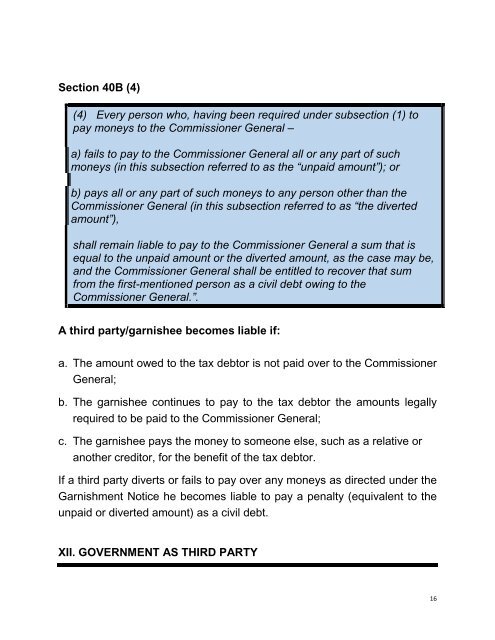GARNISHMENT POLICY
hxmrxk7
hxmrxk7
Create successful ePaper yourself
Turn your PDF publications into a flip-book with our unique Google optimized e-Paper software.
Section 40B (4)<br />
(4) Every person who, having been required under subsection (1) to<br />
pay moneys to the Commissioner General –<br />
a) fails to pay to the Commissioner General all or any part of such<br />
moneys (in this subsection referred to as the “unpaid amount”); or<br />
b) pays all or any part of such moneys to any person other than the<br />
Commissioner General (in this subsection referred to as “the diverted<br />
amount”),<br />
shall remain liable to pay to the Commissioner General a sum that is<br />
equal to the unpaid amount or the diverted amount, as the case may be,<br />
and the Commissioner General shall be entitled to recover that sum<br />
from the first-mentioned person as a civil debt owing to the<br />
Commissioner General.”.<br />
A third party/garnishee becomes liable if:<br />
a. The amount owed to the tax debtor is not paid over to the Commissioner<br />
General;<br />
b. The garnishee continues to pay to the tax debtor the amounts legally<br />
required to be paid to the Commissioner General;<br />
c. The garnishee pays the money to someone else, such as a relative or<br />
another creditor, for the benefit of the tax debtor.<br />
If a third party diverts or fails to pay over any moneys as directed under the<br />
Garnishment Notice he becomes liable to pay a penalty (equivalent to the<br />
unpaid or diverted amount) as a civil debt.<br />
XII. GOVERNMENT AS THIRD PARTY<br />
16


